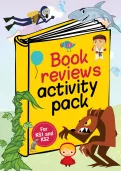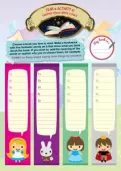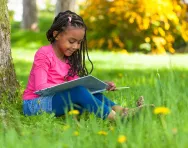Important update from TheSchoolRun
For the past 13 years, TheSchoolRun has been run by a small team of mums working from home, dedicated to providing quality educational resources to primary school parents. Unfortunately, rising supplier costs and falling revenue have made it impossible for us to continue operating, and we’ve had to make the difficult decision to close. The good news: We’ve arranged for another educational provider to take over many of our resources. These will be hosted on a new portal, where the content will be updated and expanded to support your child’s learning.
What this means for subscribers:
- Your subscription is still active, and for now, you can keep using the website as normal — just log in with your usual details to access all our articles and resources*.
- In a few months, all resources will move to the new portal. You’ll continue to have access there until your subscription ends. We’ll send you full details nearer the time.
- As a thank you for your support, we’ll also be sending you 16 primary school eBooks (worth £108.84) to download and keep.
A few changes to be aware of:
- The Learning Journey weekly email has ended, but your child’s plan will still be updated on your dashboard each Monday. Just log in to see the recommended worksheets.
- The 11+ weekly emails have now ended. We sent you all the remaining emails in the series at the end of March — please check your inbox (and spam folder) if you haven’t seen them. You can also follow the full programme here: 11+ Learning Journey.
If you have any questions, please contact us at [email protected]. Thank you for being part of our journey it’s been a privilege to support your family’s learning.
*If you need to reset your password, it will still work as usual. Please check your spam folder if the reset email doesn’t appear in your inbox.
Inspiring children to read

Year on year, teachers everywhere struggle with engaging a group of children who simply don’t like to read… yet. So how do we hook them in? Here’s some things I’ve tried in my classroom.


Claim A FREE Book Reviews Activity Pack!
- A huge collection of creative writing & reading comprehension resources
- Explore texts, deepen understanding, share opinions
- For Year 1 to Year 6
1. Make individual reading recommendations
If you're a teacher...
You are the person the children in the classroom trust the most. You know the kids like the back of your hand, so they’ll believe you when you come bursting into the classroom and tell one of them they simply MUST read this book you read over the weekend. If you know someone in your class likes science, get them hooked on Beetle Boy.
If you have a child with a penchant for history, or who likes funny books, get them into Who Let The Gods Out? The more recommendations you make, the more the children become confident in choosing books they believe they will like. There’s more power in recommending a book to a single child and saying ‘YOU will like this book’ than telling everyone in the class a book is good or putting a picture of it on your wall.
If you're a parent....
What books did you love as a child? Chances are your child will enjoy them too – and there's nothing better than rereading a book years (or decades) later and finding out that it's still brilliant. And that you get to discuss it with your child.
2. Strip the competition
If you're a teacher...
When we turn reading into a competition we suck the joy straight out of it for certain children. Flashy star charts that attribute success in reading to the volume of books consumed are ultimately a waste of time and ignore those children in your class who simply want to take their time over a good book. Not to mention the feeling of dread that must wash over those who simply can’t read quickly (and then cheat) or have barriers at home that mean they struggle to find the time to read outside of school. If there’s a prize for reading ten books in a half term then we all know Timmy is going to be reading 50 page books that don’t challenge him to make sure he gets it. Don’t get me wrong, not all reading competitions and challenges are a bad thing, but ultimately they need to do one thing: enable every child in the classroom to experience a degree of success (Mrs P Teach has a great example of this with her Book Bingo, which you can download for free from her website).
If you're a parent....
Why not set up a family book club and get everyone involved and reading? If the books you read have a cinematic version you could watch the movie as well as discussing the book as a family.
3. Make the books the star
If you're a teacher...
We all see flashy pictures of amazing (and they are amazing) reading corners from the nation's classrooms and I often feel a pang of jealousy at how artistically creative many of my fellow teachers are (I draw a great stickman). These are great, but the books must remain the star. You can have as many pillows as you want, but unless the children know and are familiar with the books in the reading corner, they’ll see it as a place to sit rather than a place to actually read. One way to get the children used to lots of the books in your reading corner is to read lots of snippets and extracts and blurbs to the children and then simply place them back in there. They’ll be gone before you know it.
If you're a parent...
Offer your child their own shelf to store their library books on and they'll always know where to go to find something they want to read – because they've picked it themselves.
4. Don’t fall into The Boy Heavy Trap
If you're a teacher...
I often see teachers asking for books that will ‘engage’ the boys. A good story will engage your boys. In fact, I implore you, at least once a year, to choose a book with a strong female heroine such as The Dreamsnatcher, Cogheart or The Polar Bear Explorers’ Club to read to the whole class. Books designed to ‘engage’ boys tend to be books with football or violence that more often than not come at the expense of quality. Not to mention that by trying to ‘engage’ the boys we dismiss all the girls in the class and potentially deprive them of quality literature because they are usually less likely to make a fuss.
If you're a parent....
A book doesn't have to have a sportsperson or beast on the cover to appeal to boys; equally, if football is your (male or female) child's interest there are some great reading options available. Whatever your child's interest, there's definitely a book about it!
5. Read aloud every day
If you're a teacher...
Fifteen minutes a day. Minimum. Non-negotiable. Children will hear your modelling, will gain depth of understanding from following a whole novel with you, and will inherently grow to love reading more. Have the children reading constantly in other lessons, both aloud and too themselves, but take time for the children to simply be read to.
If you're a parent....
Once your child can read indepdendently, don't stop reading to them! Pick challenging books that they might not be ready for, choose your own favourite stories or simply snuggle up with a picture book together – but don't stop sharing words. You might find it becomes the highlight of your day.
6. Use social media to connect with authors
If you're a teacher...
The power of social media is phenomenal – particularly Twitter. Last year my Year 6 class engaged with over 50 different authors on Twitter. From this we ended up Skypeing over ten authors and children were receiving bookmarks and posters regularly. All questions on authorial intent could be answered by the person who actually wrote the book, which was hugely powerful. One girl last year took a particular liking to Abi Elphinstone’s Dreamsnatcher trilogy. She ended up being sent a signed book and she has a review quote coming in Abi’s new book. That girl is now a reader for life. Authors love to communicate with children reading their book and it causes a really special connection for the children.
If you're a parent....
Find authors' websites and social media feeds and help your child get in touch with them. Getting a personal reply from a favourite author is a wonderful experience, and digital technology means it's a simple process to contact literary heroes, even just to let them know you (and your child) love their work.








